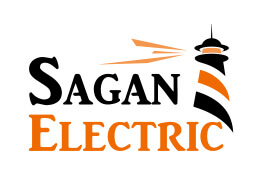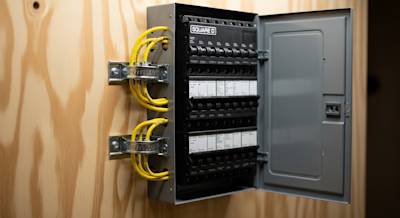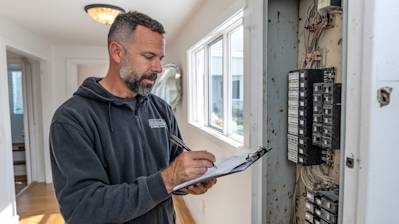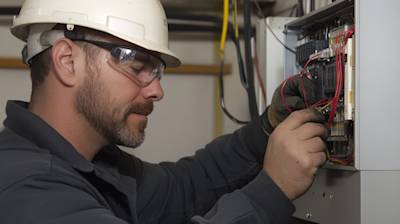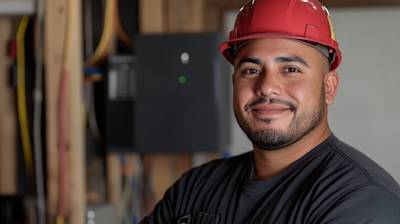When it comes to managing and maintaining the operational integrity of your residential electrical system, a skilled professional’s help is essential. These qualified individuals are referred to as residential electricians. A deep understanding of the residential electrician's role and responsibilities along with the services they offer will help you select the most suitable and efficient professional for your home.
Defining a Residential Electrician
Residential electricians are trained professionals specializing in installing, maintaining, and repairing electrical systems in homes. They bring solid technical expertise to the table, ensuring that the electrical systems meet the safety standards and function optimally.
Role and Responsibilities of a Residential Electrician
Residential electricians perform a host of services to keep your home's electrical systems safe and efficient. Technical competencies form the core of their responsibilities:
Electrical Installation: When constructing a new house or performing home renovation, installing the electrical system is a task for residential electricians. They install wiring, outlets, switches, circuit breaker panels, and more.
Maintenance and Repair: Regular upkeep is essential to keep the electrical system functioning optimally. Residential electricians ensure the maintenance of various electrical components, troubleshooting issues, and making necessary repairs.
System Upgrades: Modern appliances often require more power than older homes can provide. In such cases, a residential electrician can upgrade your home’s electrical system to accommodate the increased demand.
Why Hire a Residential Electrician?
Here are a few reasons to motivate you to hire a professional residential electrician:
Safety: Working with electrical systems can be dangerous if not handled correctly. A residential electrician understands these risks and takes necessary precautions to ensure safety.
Quality Work: Residential electricians have the necessary training and experience to provide high-quality service. Their job is to ensure your electrical systems are installed and repaired correctly, reducing the chance of future issues.
Compliance with codes: Residential electricians are familiar with local and national electrical codes. They ensure that the electrical work complies with these codes, preventing possible legal issues in the future.
Choosing a Qualified Residential Electrician
When looking for a residential electrician, consider the following:
- Licensure and Certification: The electrician should hold a valid license and certification, proving their competence in the field.
- Experience: Check the duration of experience the professional has, as it is a significant indicator of their ability to handle varied tasks.
- Reviews and References: Rely on recommendations and check online reviews to evaluate the satisfaction level of previous customers.
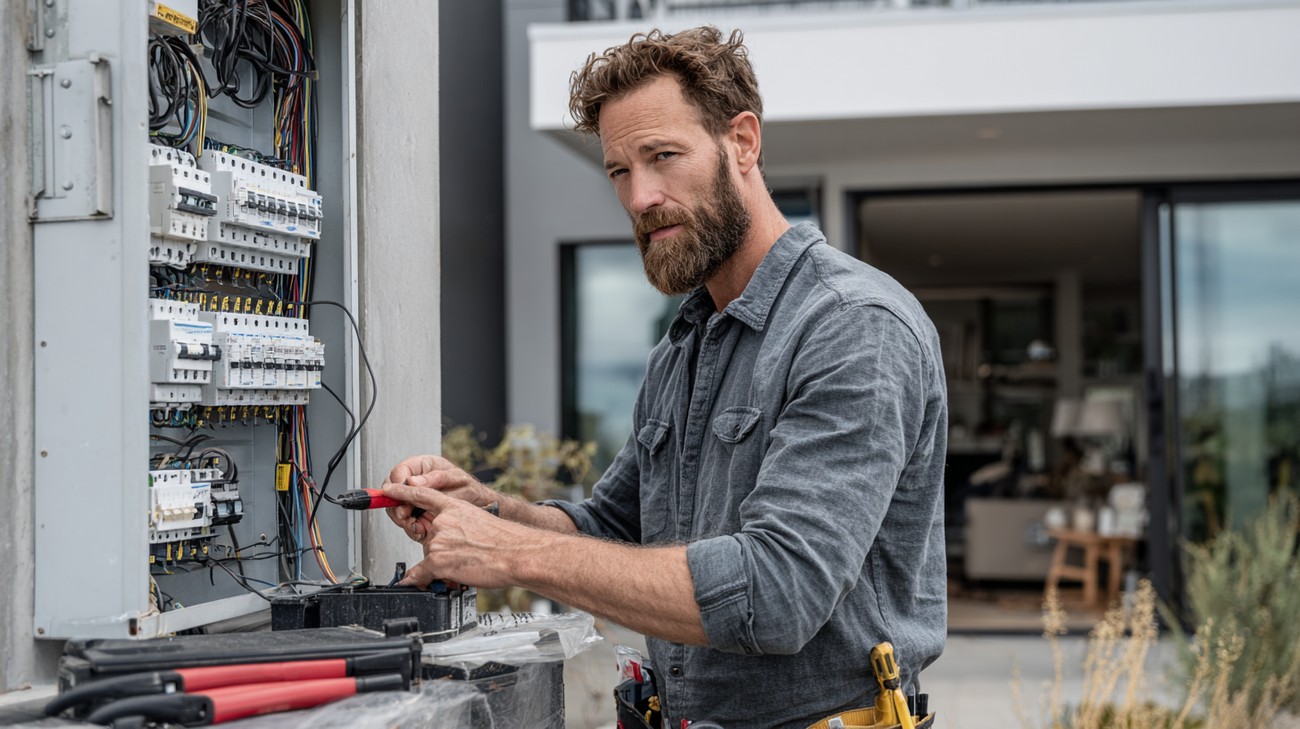
Frequently Asked Questions about Residential Electrician
What Type of Training Does a Residential Electrician Have?
A residential electrician typically undergoes extensive training to become proficient in their field. This usually includes apprenticeship under a seasoned electrical technician, in-depth classroom theoretical learning, and on-the-job training. Also, they have to pass a licensing exam before they can legally work as an electrician. The licensing exam tests their knowledge about electrical codes, different types of electrical systems, and safety practices.
How Do I Hire a Residential Electrician?
Hiring a residential electrician might seem daunting, but it doesn't have to be. Start by asking for recommendations from friends or family who have recently had electrical work done. You can also search for local electricians online and check their reviews. Don't forget to ask for their license and proof of insurance.
When Should I Call a Residential Electrician?
You should call a residential electrician when you experience frequent electrical issues such as circuit breakers tripping, lights flickering, outlets not working, or if you need new electrical appliances or systems installed. It's also important to call an electrician for regular maintenance and inspections to prevent issues from arising.
Can a Residential Electrician Install Outdoor Lighting?
Yes, a residential electrician can install outdoor lighting. They have the skills and knowledge to properly wire outdoor fixtures and ensure they operate safely and effectively. Whether you want a spotlight for your garden, ambient lighting for your patio, or security lighting around your house, a residential electrician can execute the job proficiently.
Can a Residential Electrician Help in Renovations?
In home renovations that involve changes to the electrical system, it is best to hire a residential electrician. They can assist in creating an electrical plan for your renovations, making sure that the new wiring is compatible with your existing system. They will ensure the system is safely and professionally installed in adherence to all local codes.
Are Residential Electricians Expensive?
The cost of hiring a residential electrician can vary depending on the nature and complexity of the job. However, remember that when it comes to electricity, trying to save money by doing it yourself can end up costing more in the long run if you incorrectly install or repair something. It can also lead to dangerous situations like electrocution or house fires. Hence, it is safer and more cost-effective to hire a licensed residential electrician.

Pros of Becoming a Residential Electrician
Constant Demand for Services
Stable Employment
One of the major advantages of becoming a residential electrician is the constant demand for their services. Whether it’s installing electrical systems in new homes, repairing faulty wiring, or carrying out routine maintenance, there is always work available for residential electricians, ensuring stable employment.
Recession-Proof Career
Another aspect of this constant demand is that residential electricians enjoy a relatively recession-proof career. Even in economic downturns, residential electrical services are often deemed essential, shielding professionals in this field from job losses that affect other sectors.
High Earning Potential
Being a skilled trade, residential electricians typically enjoy high earning potential. This field often pays more than the average wage, creating a pathway to a high salary for those willing to undergo the necessary training and gain the right level of experience.
Training and Career Development
Apprenticeships Opportunities
The field of electrical work, including residential electricians, is known for hands-on training via apprenticeships. These allow aspiring electricians to gain experience while earning a wage, rather than incurring student debt. It’s a unique learning system that works well to prepare future professionals.
Continuous Learning and Skill Development
In this profession, electricians are encouraged to continuously learn, evolve, and keep up-to-date with technology advancements. This factor makes the job dynamic and intellectually challenging. It creates opportunities for continued professional development and job satisfaction.
Independence and Flexibility
Residential electricians often enjoy a high degree of independence and flexibility. Many are self-employed contractors, meaning they set their own schedules, choose their clients, and have greater control over their working conditions.
Cons of Becoming a Residential Electrician
Physically Demanding
Residential electrical work can be physically demanding. It often involves lifting heavy equipment, crawling into tight spaces or working in uncomfortable positions. This can lead to physical exhaustion, discomfort or even potential injuries over time.
Risk of Electrical Shocks and Injuries
Working with electricity is inherently risky. Despite safety training, equipment, and protocols, residential electricians face a high risk of electrical shocks. In the worst-case scenarios, this could be fatal. Additionally, they might face other work-related hazards such as falls or cuts from tools.
Irregular Working Hours
Being a residential electrician often demands flexibility in working hours. Clients may require services during evenings, weekends, or holidays. In the case of emergency calls, electricians may need to interrupt their personal time to attend to the urgent needs of their clients.
Constantly Changing Industry
Need to Keep Up with Innovations
The electrical industry is continually evolving with new tools, codes, and technologies. While this can make the job exciting, it also requires a commitment to ongoing learning. Failing to keep up with these changes can risk being left behind professionally.
Cost and Time for Continuous Education
This constant need for education and training, which is usually necessary to maintain licensure, can be time-consuming and come with significant financial costs. While the knowledge can boost an electrician’s services, it can also be daunting and straining.
Requirement for Licensing
In most regions, practicing as a residential electrician requires a license. This involves a combination of education, apprenticeship, and passing a licensing exam. The process can be rigorous and lengthy, and failing to maintain this license can mean a halt in practice.

Myths and Misconceptions About Residential Electricians
Many of us tend to have certain misconceptions about residential electricians and the work they do. These flawed beliefs not only distort our understanding but can sometimes also lead to unsafe practices. Here, we take a detailed look at some of these myths and misconceptions about residential electricians.
All Electricians Do the Same Job
This is far from the reality. Electricians specialize in different areas such as commercial, industrial, and residential settings.
Differences in Training
A residential electrician typically completes an apprenticeship, which may include both classroom study and hands-on training over several years. Commercial and industrial electricians, on the other hand, may undergo more specialized training to cater to large-scale projects and special machinery.
Differences in Work Environments
Moreover, the daily work environment varies greatly across different specializations. For instance, a residential electrician mostly works in homes and small apartment complexes. In contrast, commercial electricians work in larger places like offices and shopping malls. Industrial electricians work in factories and industrial facilities where they may encounter highly specialized electrical systems.
Circuit Breakers Do Not Need Routine Checks
This is a dangerous misconception. Routine checks can help identify potential issues in your electrical system before they become major problems.
Importance of Regular Checks
Regular circuit breaker checking ensures that they are functioning correctly. A properly functioning circuit breaker can prevent electrical fires by tripping when an overload or short circuit is detected.
Any Handyman Can Do an Electrician's Job
This is an often dangerous misconception. Complex electrical work should always be undertaken by a professional electrician.
Safety Issues
Electricity is not something to be casually tampered with. Improper handling can lead to electrical fires, electrocution, and other serious safety hazards.
Legal Implications
Moreover, unlicensed electrical work can be illegal. You may face fines, have problems reselling your home, or fail to receive insurance coverage if you undertake electrical work without the appropriate qualifications.
Any Electrical Issue is an Emergency
While it's true that electrical issues can be serious, not every problem requests an urgent response.
Distinguishing Between Emergencies and Non-Emergencies
Some issues, like a non-functioning power outlet, could be annoying, but not necessarily dangerous. However, signs of electrical fires, such as sparking or buzzing sounds from your outlets, are definite emergencies.
All Electrical Surges are Dangerous
Electrical surge can vary in intensity. Not all are damaging or even detectable.
Understanding Electrical Surges
A power surge is a sudden increase in voltage that can potentially harm electronic devices. Not all power surges pose a threat to your electrical devices. Minor power surges occur frequently and go unnoticed because they don't cause damage.
In conclusion, misconceptions about residential electricians are prevalent, leading to potential safety hazards and legal implications. Understanding the role of a residential electrician, the dangers of handling electricity without proper training, and recognizing the importance of routine checks of your electrical system can help ensure the safety of your home and your family.
Summary
When it comes to electrical work in your home, a residential electrician is your go-to professional. They have the knowledge and experience to handle a multitude of tasks, ensuring that your residential wiring and systems adhere to all safety standards. It's not just about making sure the lights turn on, it's about giving you peace of mind knowing your home's electrical infrastructure is sound and your family is safe.
Suffice it to say, engaging a residential electrician isn't optional when you're dealing with electrical needs at home. From installations, repairs, to maintenance, they can help you avoid potential disasters by diagnosing problems or electrical faults early. No amount of DIY videos can replace the expert service and safety a professional electrician provides.
So, are you planning a home renovation, or do you have a flickering light that's been driving you nuts? Don't hesitate - call up a residential electrician. They can take care of those niggly issues, and even identify potential risks you may not know about. Save yourself the stress and potential risk of doing it yourself and get a professional to look at it. The service and safety they provide is worth every dime.
About Sagan Electric
At Sagan Electric, we're your go-to buddies for all your electrical needs in Sacramento, CA. Nestled in the heart of the Golden State, our team of skilled and enthusiastic electricians is passionate about making a positive impact in the community. With a bucket load of experience, we deliver a spectrum of services - from small home repairs to large commercial fit-outs. But most importantly, at Sagan Electric, we believe in providing top-notch quality, unmatched reliability, and superior customer satisfaction. So whether you want to fix a blown fuse or redesign your lighting system, your electric pals at Sagan Electric are here to keep your world bright and powered-up. Join us in this electric journey for a safe, efficient, and reliable solution to all your electrical quandaries.
Tags: electrician, home services, residentialmaintenance,
